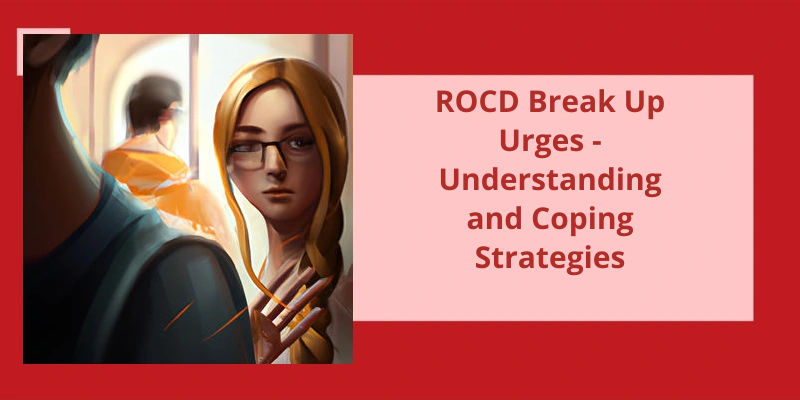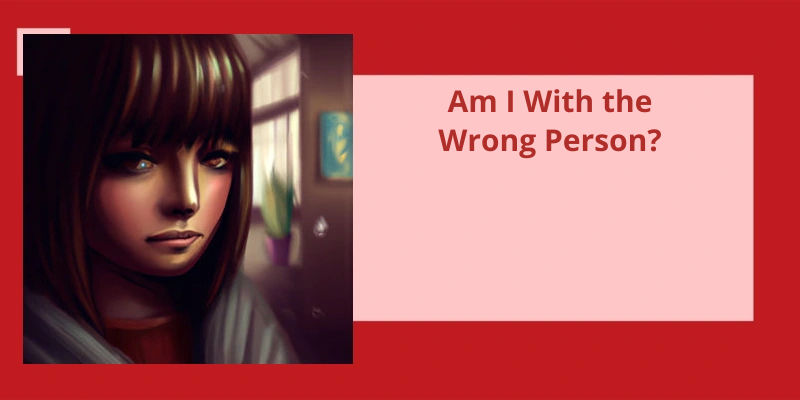"Why do I feel suffocated when dating?" is a question that many individuals find themselves pondering in the midst of a relationship. This feeling of suffocation often stems from a state of emotional imbalance, where one person in the relationship feels overwhelmed, crowded, or trapped by their partner's constant need for attention, affection, or validation. It’s during these moments that the relationship can begin to feel suffocating, almost as if there’s no room for personal space or individual growth. Understanding the root causes of this suffocation can lead to valuable insights and opportunities for personal growth within the realm of dating and relationships.
When a Girl Says She Feels Suffocated?
When a girl says she feels suffocated in a relationship, it often means that she feels a sense of claustrophobia and unease. It can be a result of the relationship feeling excessively close and intrusive, making it difficult for her to truly relax and be herself. This feeling is often amplified when she feels as though her partner constantly wants to know who she’s talking to or spending time with. It can create a sense of suffocation and restriction in terms of what she feels comfortable expressing or doing in the relationship. However, it’s important to note that feeling suffocated doesn’t necessarily mean she wants to be completely alone or without you.
Understanding her need for space and respecting her boundaries is crucial in addressing this feeling of suffocation. It’s important to have open and honest communication to discuss how both partners can strike a balance between togetherness and personal space. By creating a healthy and supportive environment that allows for individual growth and autonomy, the feeling of suffocation can be alleviated and both partners can feel more comfortable and secure in the relationship.
Remember, relationships thrive when both individuals have room to grow and nurture their own passions and interests. Giving her the space and freedom she needs will ultimately strengthen your bond and allow for a healthier, more balanced relationship.
How to Create a Supportive Environment in a Relationship
- Effective communication
- Active listening
- Show empathy
- Respect boundaries
- Give and receive constructive feedback
- Share responsibilities
- Express appreciation and gratitude
- Be accepting and non-judgmental
- Encourage individual growth
Commitment issues can often stem from deep-rooted fears and experiences. The fear of feeling suffocated or trapped in a relationship can be a major factor. This fear can arise from previous negative experiences, a fear of making the wrong choice, or the fear of missing out on other opportunities. Trauma from past relationships or growing up in an environment with unhealthy boundaries can also contribute to these feelings of suffocation. It’s important to understand and address these fears in order to develop healthier and more fulfilling relationships.
Why Does Commitment Make Me Feel Suffocated?
Commitment issues aren’t uncommon and can stem from a variety of reasons. One of the main factors behind feeling suffocated when dating is fear. This fear can manifest in different ways, such as a fear of being smothered or overwhelmed in a relationship. It may also be a fear of experiencing emotional pain or getting hurt due to vulnerability and attachment.
The fear of settling for the wrong person can also play a significant role in feeling suffocated. This fear arises from the worry that committing to someone means missing out on other potential partners or experiences. It stems from a fear of making the wrong choice and the anxiety of not knowing what else is out there.
Additionally, past traumatic experiences in relationships can contribute to feeling suffocated when dating. If someone has experienced a toxic or abusive relationship in the past, they may have deep-rooted fears and trust issues that make commitment challenging. These past experiences can create a sense of suffocation as the fear of repeating past pain lingers.
Furthermore, individuals who come from families with unhealthy boundaries may struggle with commitment. Growing up in an environment where boundaries were blurred or violated can make it difficult to trust and feel comfortable in a commitment. This lack of boundaries in childhood can lead to a fear of losing oneself or being engulfed by a partner, causing feelings of suffocation.
By addressing and working through these fears, individuals can gradually develop a healthier perspective on commitment and relationships. This may involve self-reflection, therapy, and open communication with partners to establish trust and healthy boundaries.
The Influence of Past Relationship Patterns on Feeling Suffocated in New Relationships
Feeling suffocated in new relationships can be influenced by past relationship patterns. Previous experiences, particularly negative ones, may leave emotional scars and make it challenging to fully trust and open up to a new partner. The fear of repetition of past hurts and the need for independence or personal space can contribute to feelings of suffocation. It’s important to communicate and establish boundaries with a new partner to ensure both individuals’ needs for autonomy and connection are met.
Conclusion
This suffocating sentiment arises from an imbalance within the relationship, where one person feels an immense pressure to constantly meet their partner's demands. The suffocated individuals might yearn for personal space, autonomy, and a sense of self, but feel unable to establish boundaries or communicate their needs effectively. This prevailing sense of being smothered can have detrimental effects on their mental and emotional well-being, ultimately leading to feelings of dissatisfaction, resentment, and a diminished sense of individuality. Addressing this suffocating dynamic requires open and honest communication, establishing healthy boundaries, and fostering a sense of mutual respect within the relationship.






